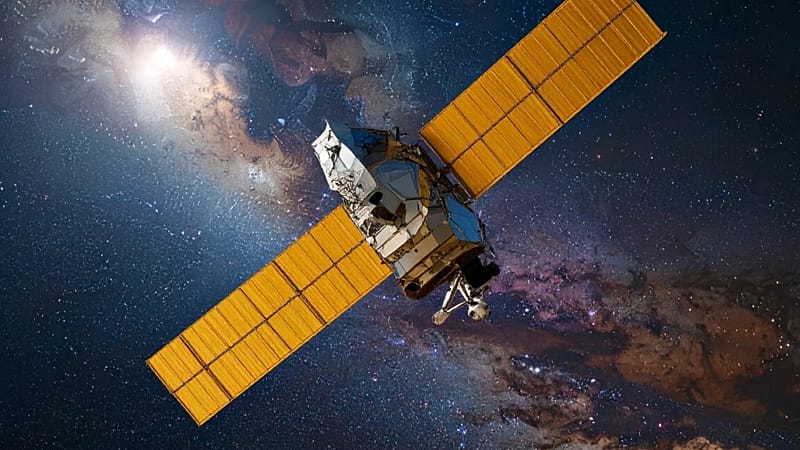France wants to bolster its space defences. Here's what it could buy first

At the inauguration of France’s space command centre in Toulouse, President Emmanuel announced an additional €4.2 billion for weapons that could secure Europe’s interests in space.
The additional spending brings France’s eventual investment in space weapons to over €10 billion by 2030, up from the €6 billion already earmarked in 2023 by the Ministry of the Armed Forces.
Macron said the investment aims to match what France’s competitors are building in space, for example energy arms and lasers that are deployed on the Earth’s surface that “aim to deprive us of our … sovereignty and to challenge our operational superiority”.
The speech didn’t include concrete commitments, but it included a few hints of new weapons that could be used in France’s space defense, including patrol satellites, lasers, and signal randomisers.
Here’s what we know about some of the weapons that the French state could be paying for.
A fleet of microsatellites
Macron said that part of this new spending will include the deployment of patrol-seeking satellites called Orbit Guard and TOUTATIS that will be able to “inspect and protect our assets in orbit”.
In August, Toulouse-based aerospace company Infinite Orbits announced it had signed a deal with the French military for a surveillance satellite that would stay in geostationary orbit (GEO), providing constant information from one determined site.
The company said it would also provide the French government with the Positioning and Autonomous Laser Assisted Detection in Near-space (PALADIN) project, a fleet of “microsatellites” that can observe space with sensors and inspect other satellites up close.
The autonomous satellites all weigh about 100 kilograms, which means they will be agile and able to approach other satellites within one kilometre of their stations.
The deal cost the French Ministry of Armed Forces €50 million, according to a press release from the department.
The Orbit Guard satellite and the Paladin system are part of France’s Space Action and Resilience Plan (ARES) to eventually counter an attack launched in space against the country’s satellites.
Defences in low earth situations
Another type of satellite that Macron directly mentioned is the In-Orbit Test of Action Techniques against Attempted Spatial Interference (TOUTATIS).
This project will develop France’s capacities to detect, monitor, and possibly act against a space attack at low earth orbit (LEO) altitudes under 2,000 kilometres from the Earth’s surface.
One satellite, called the SPLINTER, is an “action” satellite that is easily manouevrable and will have a “set of sub-systems” that will keep it working autonomously, according to the French military.
It will work with a second satellite, the LISA1, which is a “spotter” satellite that will have “advanced observation capacities,” to watch what is going on at orbit, according to the government.
The TOUTATIS project is being worked on by U-Space, a French startup that works with nanosatellites, and European weapons company MBDA.
The military says there have been several demonstrations of these capabilities since 2021.
Space-based lasers and jammers
Macron also said that France is developing its first “space-based” capacities, with a particular focus on lasers and jammers.
France has already committed not to test anti-satellite missiles (ASAT), space weapons designed to directly incapacitate or destroy satellites. These attacks create space debris and can be considered “destabilising and irresponsible,” the government said in 2022.
Despite this commitment, the government can develop non-kinetic weapons that can physically damage a satellite without any direct contact.
American think tank The Center for Strategic and International Studies (CSIS) says that non-kinetic attacks include electromagnetic pulses, high-powered lasers, and high-powered microwaves.
Today

